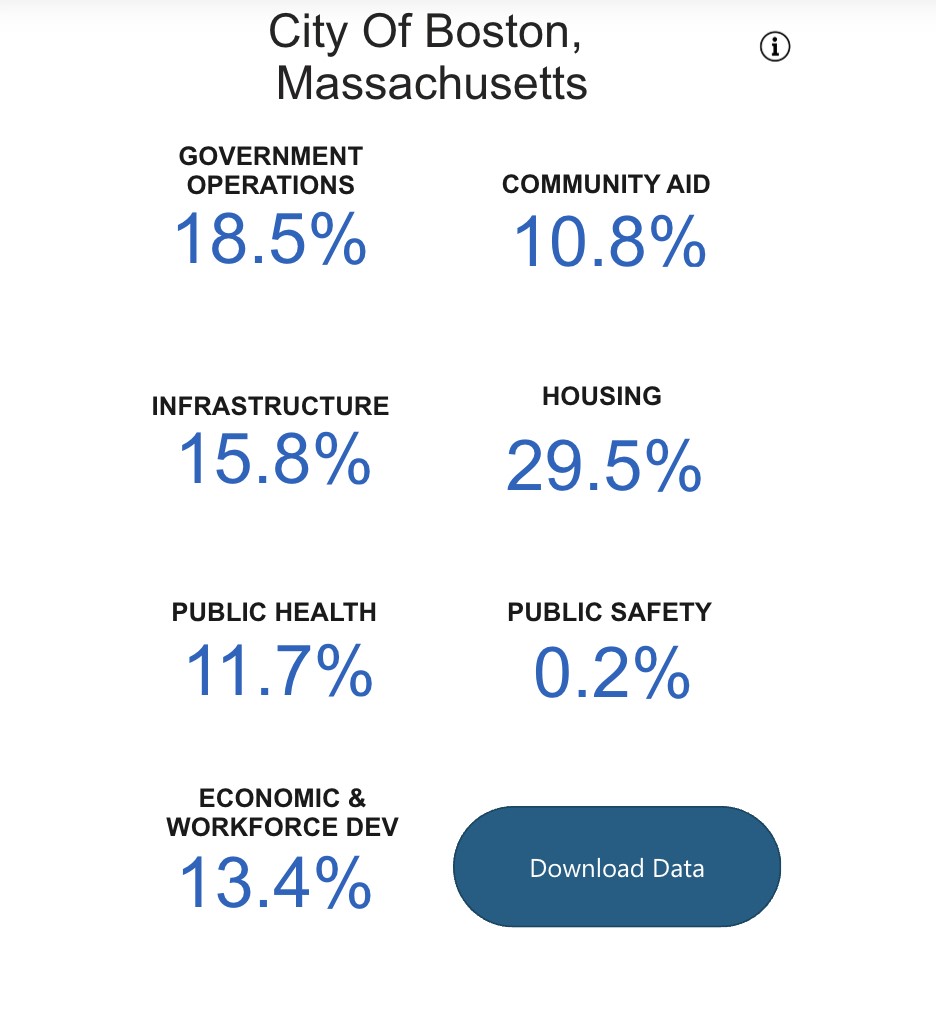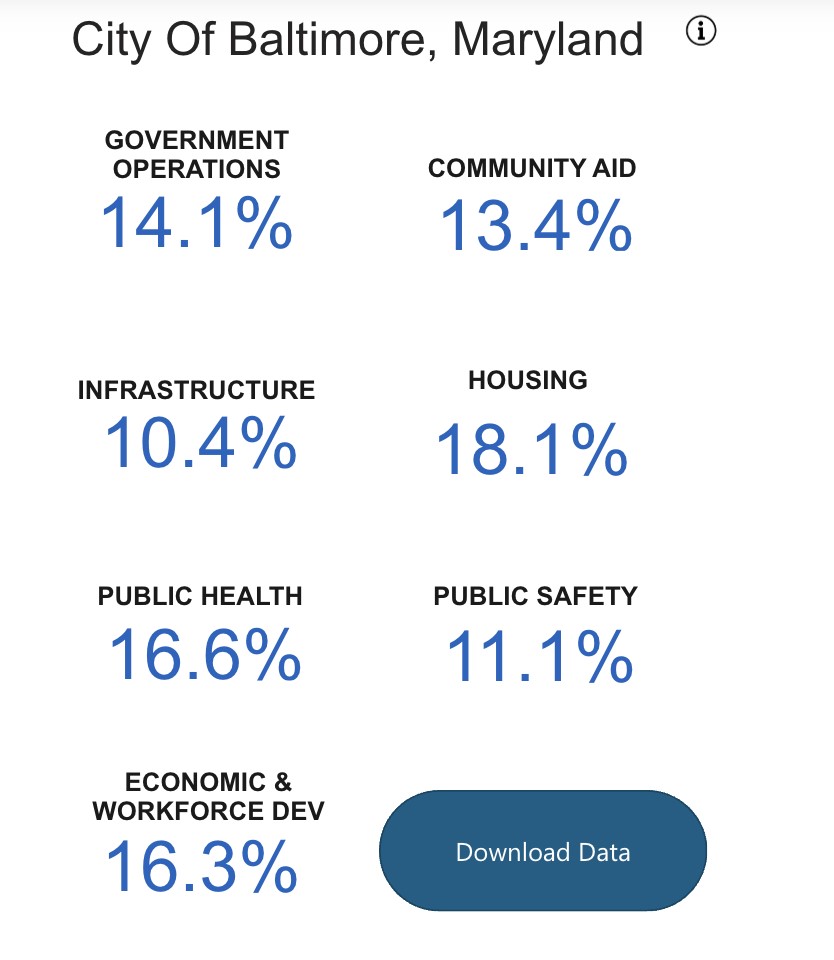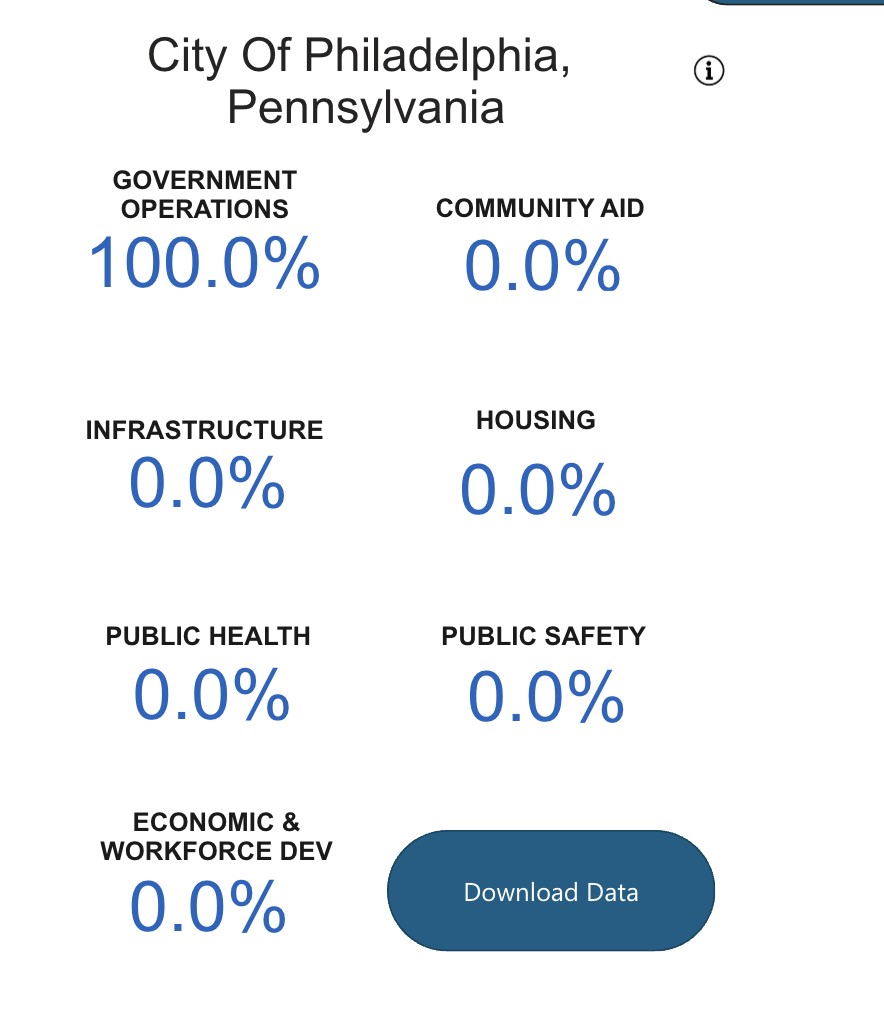Remember when, during the pandemic, the federal government came to the rescue of cities and states? As Bruce Katz has so expertly chronicled, the fiscal floodgates opened, a bipartisan act in a time of crisis. So … how did Philly do with all that dough?
Sad to say, so far, not too well. While other cities took advantage of the crisis to invest their federal funds in taking on their long-entrenched problems, Philly eschewed such forward-thinking planning and instead opted for propping up that which had gotten us into so many of our messes in the first place.
That’s a reasonable conclusion drawn from Brookings’ Local Government ARPA Investment Tracker. ARPA — the American Rescue Plan Act of 2021 — was President Biden’s $1.9 trillion economic stimulus bill that built on the CARES Act, an earlier package signed by President Trump. There are still other federal dollars flowing to cities, particularly from Biden’s Inflation Reduction Act and the CHIPS Act. But we know now that, to date, cities received north of $55 billion in ARPA funds.
Let’s see how Philly used its money compared to peer cities. Here, for example, is how Boston used its windfall:

Seems reasonable, right? Beantown held 18.5 percent of its stimulus dollars back to buttress its own budget, while smartly investing the rest in housing (29.5 percent), economic development (13.4 percent) and public health (11.7 percent.) Boston’s approach dovetails with that of most of Philly’s peer cities. Rather than use federal dollars to just plug holes in the existing ship of state, progressive Mayor Michelle Wu sought to spend in areas that could provide returns on this unexpected investment.
Baltimore essentially took the same tack:

Now take a look at Philly:

That’s right, 100 percent of our initial ARPA funds — nearly $600 million — have been assigned to the category of “revenue replacement.” That means it just goes into the general fund. This is not to say that that money is being wasted per se. The city explains its strategy here, projecting that Covid’s financial impact on the city’s budget through 2025 would amount to a $1.5 billion shortfall and that the expected ARPA funds over that period would just about offset that hit.
Let’s be clear here: That’s accounting, not governing. The ARPA funds represented an opportunity to rethink the budget, not just salvage it.
Just imagine where we could be now
Play around with the Brookings tool; there aren’t many other major cities taking such a status quo approach. In a city with rampant poverty, historically anemic job growth and 72 percent of its third-graders not reading at grade level, you couldn’t come up with some innovations to address those long intractable outcomes?
We’ve written about how Scranton Mayor Paige Cognetti used her ARPA funds to essentially raise her city’s minimum wage, growing her local tax base; Austin, Texas used $95 million to make real inroads against homelessness; Boston, Kansas and Fresno, California all established MINTs — short for Mixed Income Neighborhood Trust, a mechanism by which neighborhood organizations develop, own, and operate rental housing and retail portfolios to mitigate against gentrification and displacement.
Will Mayor Parker’s first budget be pro-growth, or will it — as the government she’s inheriting exhibited in its ARPA spending — double down on the curse of incrementalism that has long held Philly back?
Lest you think this is all looking backwards — there he goes again, beating up Kenney; let the man rest in peace! — remember that Mayor Parker retained her predecessor’s Director of Finance, Rob Dubow. The Kenney administration had few strong policy voices pushing back against Dubow’s pocket protector approach to what could have marked a period of historic investment.
Just imagine where our city’s GDP would be right now if we’d done as I suggested in 2022 and directed some ARPA money to making actual investments in equitable job growth. What if the city had matched the $100 million commitment of the GRIT Fund, a consortium of banks funneling capital to Black and Brown entrepreneurs through small, local CDFIs? Or contributed to Della Clark’s ambitious Black and Brown business equity fund?
So will Parker push back against the limits of Dubow’s fiscal imagination? Parker’s soaring rhetoric in the campaign and thus far in her administration would suggest so. There’s a movement afoot in politics that gets beyond the tired debate between “tax and spend” and “austerity” budgeting. It’s alternately called supply-side progressivism, abundance progressivism, or — I like this term — outcomes progressivism.
It got its start in the San Francisco housing wars in recent years, led by Philly ex-pat activist Sonja Trauss, the driving force behind YIMBYism. Another Philly ex-pat, California State Senator Scott Wiener, has passed some of the most supply-side-oriented housing legislation in the nation. As argued for by Trauss, Wiener, and Ezra Klein at The New York Times, and as embodied by Colorado Governor Jared Polis, Outcomes progressivism emphasizes increasing the supply of essential goods and services like housing, healthcare and education — in order to make them more abundant and, thus, affordable. Its emphasis is more economic than cultural; its theory of change revolves around investing in economic growth as a means for ultimately driving down inequality.
Whether he’s read the outcomes progressivism literature or not, Shapiro’s budget fits the bill. It’s a budget of investments with an eye toward creating pathways to the middle class — from forgiving medical debt, which I’ve championed as economically stimulative; to increasing the minimum wage; to $600 million for the first statewide economic development program in two decades, including the innovative Main Street Matters project to revitalize neighborhood business districts; to reaping the tax benefits of recreational marijuana; and to making higher education affordable to working class families. It’s a blueprint for growing a stagnant economy. (The Commonwealth currently ranks 34th nationally in economic growth, at an annualized five-year rate of just 0.4 percent.)
There aren’t many other major cities taking such a status quo approach. In a city with rampant poverty, historically anemic job growth and 72 percent of its third-graders not reading at grade level, you couldn’t come up with some innovations to address those long intractable outcomes?
When Republican State Senate President Pro Tem Kim Ward criticizes Shapiro’s budget for its $48 billion price tag, suggesting it puts the state’s rainy day fund in jeopardy, she’s back in the old “tax and spend” versus “austerity” debate. Fact is, even if Shapiro gets everything he wants, the state will still have a record $11 billion surplus. More important, Ward’s critique does not take into account any growth derived from Shapiro’s proposed investments in future years.
If his investments in workforce development, for example, prepare legions of high school graduates, coal miners, and truck drivers in the age of clean energy and autonomous driving for jobs as software developers, data analysts and renewable energy technicians, what would that payoff be? Wouldn’t that not only grow the tax base but also increase economic opportunity? Maybe Pennsylvania’s pie will start growing, rather than its interest groups all continuing to fight over smaller and smaller slices.
That’s the challenge for Mayor Parker’s first budget. Will it be pro-growth, or will it — as the government she’s inheriting exhibited in its ARPA spending — double down on the curse of incrementalism that has long held Philly back? It’s not only a mindset; incrementalism is itself embedded in our budgeting process.
Every year, each department revisits its prior year spending and requests a nominal percentage increase, a practice that, by definition, takes new and ambitious thinking off the menu. The focus is on what has been spent and what it’s been spent on, rather than on the results of said expenditures. Budgets that begin with the question what outcome are we trying to achieve are the ones that grant themselves the room to think big.
That’s why it was quite exciting when, in 2015, then-candidate for mayor Jim Kenney ran on the premise of zero-based budgeting — a politically perilous promise that never came to fruition. In the zero-based approach, governments don’t assume that this year’s budget will necessarily be based on last year’s version, but rather ask questions regarding what spending is most essential to the core mission — and what is the most effective way to meet that mission. You start, in other words, with the outcome you desire, and work backwards from there.
That’s the first step in outcomes progressivism, and it is clearly the type of exercise Shapiro’s team went through. Will Parker follow suit? Her mantra of “Safer, Cleaner and Greener” is catchy and an inspiring call to arms. But it’s missing “Growing.” Who cares if the word is in the slogan, so long as the act of it is in Parker’s governing DNA.
![]() MORE ON GOVERNMENT FROM THE CITIZEN
MORE ON GOVERNMENT FROM THE CITIZEN



